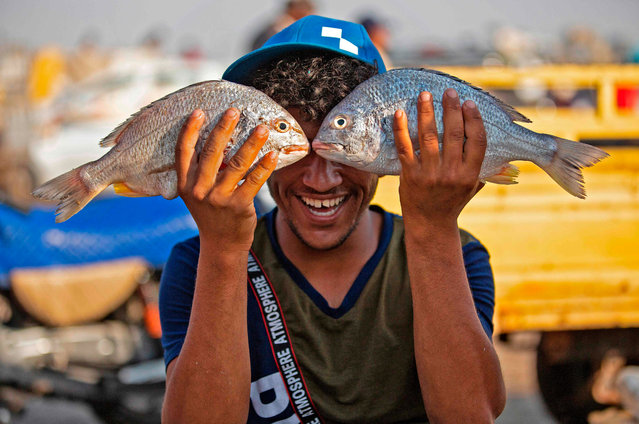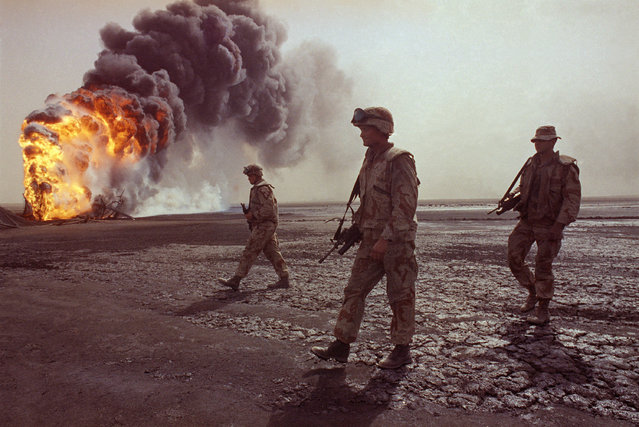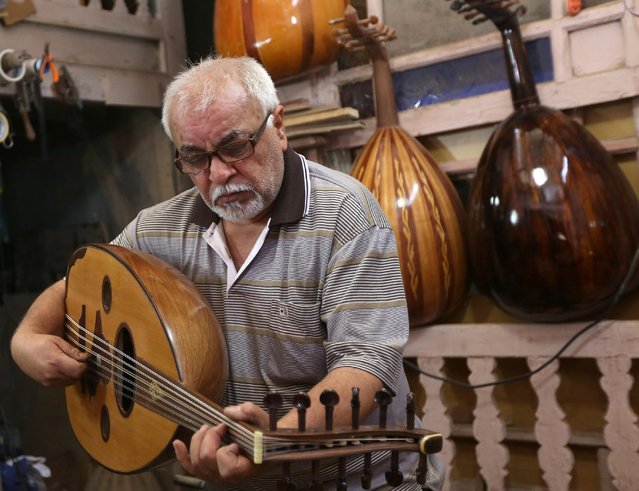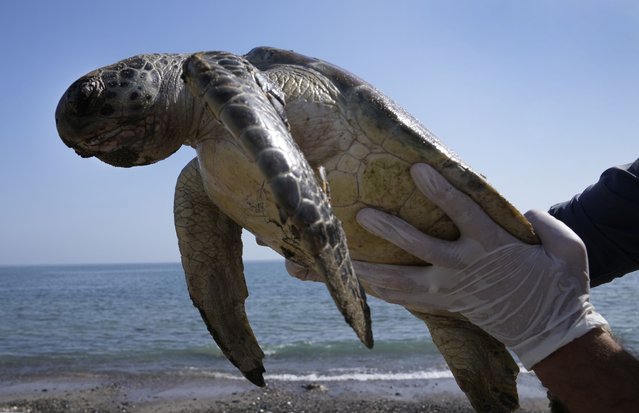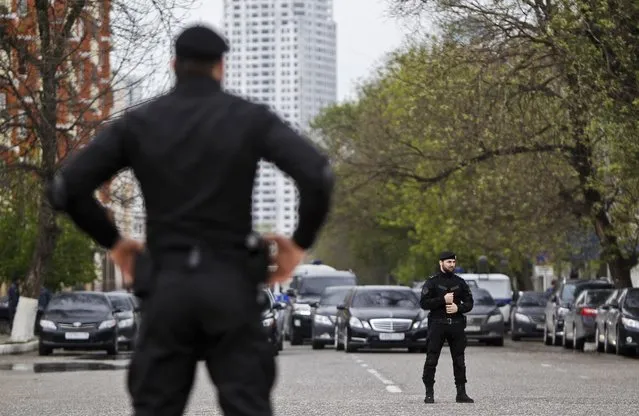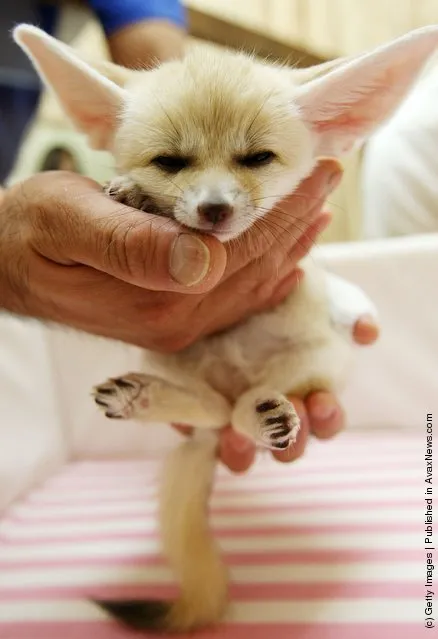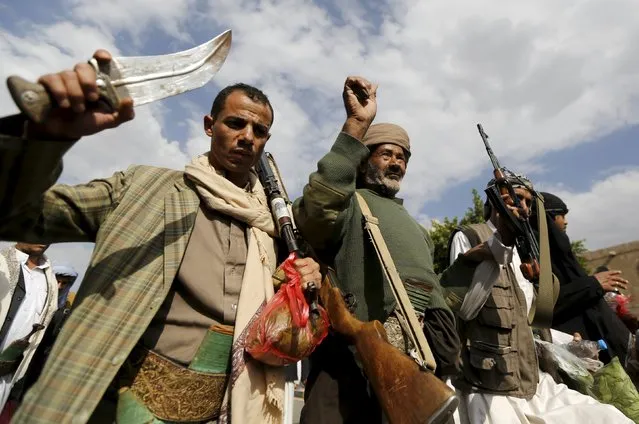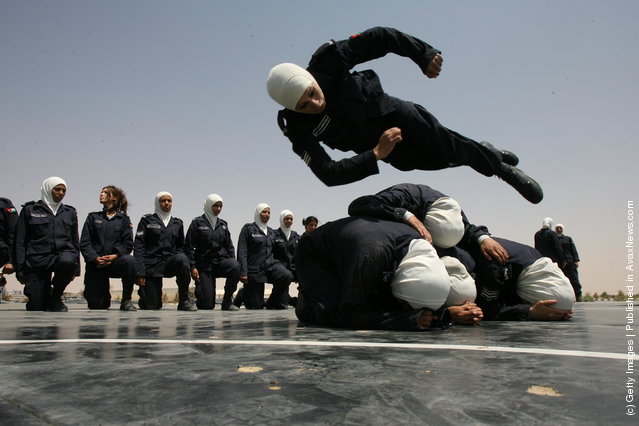
Jordanian policewomen train in unarmed combat in the training city August 21, 2008 in Muwaqqar, east of Amman, Jordan. A women's police academy opened in Amman in 1972 making Jordan the first Arab country to admit women to its police services. Jordanian policewomen work as personalities' guards, special security operations and traffic policewomen including motorcycling among other professions. (Photo by Salah Malkawi/Getty Images)
26 Apr 2011 09:15:00,post received
0 comments

